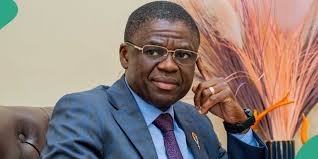By Milcah Tanimu
In a legal battle with implications for Edo State’s political landscape, Deputy Governor Philip Shaibu asserts that the seven-member investigative panel convened to assess his impending impeachment is acting against the directives of a Federal High Court injunction from Abuja.
During the panel’s inaugural session in Benin on Wednesday, Shaibu, represented by his legal counsel Prof. Oladoyin Awoyale, SAN, contended that the panel’s proceedings would undermine the standing court order, scheduled for further deliberation on April 8.
Awoyale emphasized the importance of abiding by the court’s injunction, urging all parties involved to respect the legal process.
However, the House of Assembly’s legal representatives, including Deputy Clerk Joe Oaifi, countered this argument, citing Section 188(10) of the constitution, which they claim precludes any judicial intervention in the Assembly’s constitutional duties.
The investigative panel, chaired by retired Justice S. A. Omonuwa and appointed by the State Chief Judge, Justice Daniel Okungbowa, is tasked with probing misconduct allegations levied against the deputy governor by the Edo State House of Assembly.
Meanwhile, a Federal High Court in Abuja rejected Shaibu’s plea for an interim injunction to maintain the status quo pending the resolution of the underlying lawsuit. The court’s decision followed Shaibu’s motion ex-parte, in which he sued various governmental entities involved in his impeachment process.
Despite initial setbacks in court, Shaibu’s legal team continues to pursue legal avenues to challenge the impeachment proceedings, seeking judicial intervention to safeguard his official duties and responsibilities.
The legal maneuvering underscores the high stakes involved in the ongoing political drama in Edo State and sets the stage for further legal battles between the deputy governor and the state’s legislative and executive branches.

